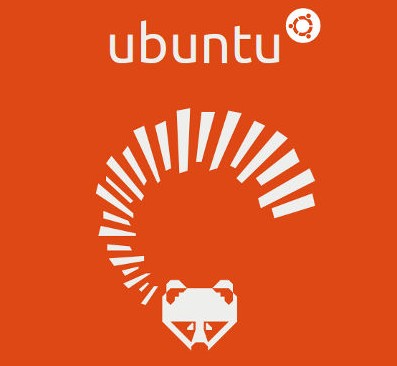 NEWS
NEWS
 NEWS
NEWS
 NEWS
NEWS
![]() Canonical has just taken the wraps off its latest Ubuntu Server release, with version 13.04 coming out later today. “Raring Ringtail” isn’t one of the long-term support (LTS) releases – that won’t be out till April of next year – instead offering just six months of support. It’s more of a stepping stone towards the 14.04 LTS, but nevertheless, Raring Ringtail does contain a few interesting new features, especially for those using it in cloud deployments.
Canonical has just taken the wraps off its latest Ubuntu Server release, with version 13.04 coming out later today. “Raring Ringtail” isn’t one of the long-term support (LTS) releases – that won’t be out till April of next year – instead offering just six months of support. It’s more of a stepping stone towards the 14.04 LTS, but nevertheless, Raring Ringtail does contain a few interesting new features, especially for those using it in cloud deployments.
The biggest change for Ubuntu Server this time around is its tight-knit integration with the new Grizzly release of OpenStack, which comes by default with Ubuntu Server 13.04, and brings all of its various services to the fore, including: Nova compute, Swift object storage, Glance image management, Keystone identity management, Cinder block storage, Horizon management console and Quantum virty networking. These services will all be integrated with the Juju software provisioning tool, and manageable under the Landscape Ubuntu operating system console.
The Juju orchestration ‘charms’ in Ubuntu 13.04 which are basically scripts setup to provision software atop of Ubuntu, have received an update that lets them deploy OpenStack for high availability. For example, when MySQL is deployed, Juju sets up three nodes in a failover configuration, while a similar approach is used for the Rabbit messaging server. Not everyone wants to deploy two or three of everything though, and so it’s still possible to deploy services in a “less available” way. OpenStack Grizzly can also be run on the Ubuntu 12.04 LTS, but those who wish to will have to download it from the Ubuntu Cloud to do so. However, it hasn’t been certified to run on 12.10 – though there doesn’t seem to be any reason why it wouldn’t work, but nevertheless Canonical has provided an easy upgrade from 12.10 to 13.04, and so this is probably the best way to get hold of Grizzly.
It’s worth noting that Canonical has worked closely alongside Vmware to make it possible to integrate its ESXi server virtualization hypervisor in OpenStack Grizzly, making it a peer alongside Xen and KVM. In addition, its cooperated closely with Microsoft to ensure that Ubuntu Server works equally well atop its Hyper-V hypervisor, with the ultimate goal being to integrate Hyper-V with OpenStack and make this a peer as well.
Elsewhere, the Ceph 0.56.4 “Bobtail” block storage subsystem also comes fully integrated with OpenStack and Ubuntu, something that should please service providers and telcos, while Floodlight OpenFlow has also received an update. As for networking meanwhile, Vmware’s Open vSwitch 1.9.0 virtual switch for hypervisors comes packaged with the release, while there’s a package for NVP OpenFlow controller in the Ubuntu Cloud Archive.
Ubuntu Server 13.04 is ready to download now.
![]() Alongside Ubuntu Server, Canonical has also brought out an up-to-date version of its PC operating system, which promises to use less system and memory resources, whilst offering faster boot times and more power management efficiency.
Alongside Ubuntu Server, Canonical has also brought out an up-to-date version of its PC operating system, which promises to use less system and memory resources, whilst offering faster boot times and more power management efficiency.
The new enhancements are all part of Canonical’s drive towards a new, unified operating system that can boot up on everything from laptops and desktops, to smartphones and tablets. We touched on Canonical’s vision earlier this year, which sees users being able to run all their computing needs from a single device, with a smartphone or tablet being able to dock with a keyboard and monitor to boot up a full desktop version of the OS when needed.
The enhancements are part of the drive towards the unified operating system that can encompass usage from smartphone to desktop, with a device that can be used as a smartphone or tablet when mobile, but used as a PC workstation when docked.
Canonical claims that 13.04 boots up in about 40 seconds on a standard desktop – not as fast as Windows 8, but still pretty slick – while memory use is reduced by as much as 50MB, leading to less power consumption. Differences remain between this release and the Ubuntu Touch ‘stack’ that’s designed for mobile devices, though the two will converge by the time 14.04 comes around next April.
We’ll be watching to see how the Ubuntu OS side of things develops. While both Apple and Google have made efforts to unify their mobile and desktop operating systems ,Canonical is the first company to go all out and embrace the idea of a single, multi-purpose OS that can run on any device.
Those who want to try out the new Ubuntu 13.04 OS can do so without making any key changes to their computer using this download.
Support our mission to keep content open and free by engaging with theCUBE community. Join theCUBE’s Alumni Trust Network, where technology leaders connect, share intelligence and create opportunities.
Founded by tech visionaries John Furrier and Dave Vellante, SiliconANGLE Media has built a dynamic ecosystem of industry-leading digital media brands that reach 15+ million elite tech professionals. Our new proprietary theCUBE AI Video Cloud is breaking ground in audience interaction, leveraging theCUBEai.com neural network to help technology companies make data-driven decisions and stay at the forefront of industry conversations.